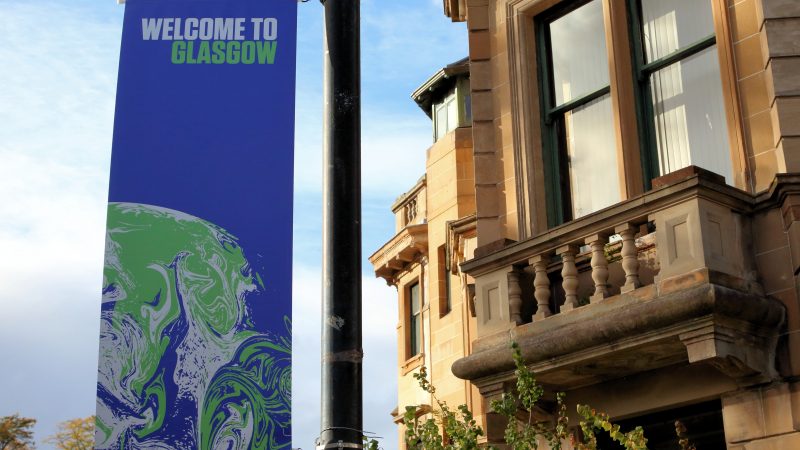
As UN climate change conference COP26 kicks off, Boris Johnson is abandoning his usual boosterish tone to deliver a serious warning: “It’s one minute to midnight and we need to act now”. Ahead of the summit, the Prime Minister put the chances of its success at “six out of ten”. This is expectation management, much like Liz Truss telling LBC that “at the moment we don’t know if we are going to be able achieve what we want to achieve” at COP26, which keeps it sufficiently vague as to allow ministers to claim victory if any minor steps forward are taken by mid-November. But a realistic look at where things currently stand isn’t much more encouraging.
G20 leaders over the weekend could not agree to ending the use of coal in their own countries, only to ending their financing of coal power abroad. They also agreed to reach a target of net zero carbon emissions “by or around mid-century”, rather than by the clear date of 2050. (And ‘net’ is already a bit of a fudge.) But that would not be enough either. “We need to halve global emissions by 2030, not rely on vague plans for three decades’ time,” Labour’s Ed Miliband said. “It’s time for climate delivery, not more climate delay.”
There has been a lot of focus on net zero targets, and particularly a 2050 aim. The UK government heaped praise on Australia for making a 2050 net zero pledge, for example, with Johnson calling the move “heroic”. The problem is that these targets, while indicating some progress, look a lot like substitutes for inaction right now. Countries can set net zero targets for 30 years’ time and do nothing this decade, but it is this decade that is crucial.
Why is 2030 most important? Because if we use up our ‘carbon budget’ (an allowable amount of emissions) too quickly, there is little to no chance of ‘keeping 1.5°C alive’. This was the goal set by the 2015 Paris Agreement: to keep the rise in global temperature to well below 2°C above pre-industrial levels, preferably to 1.5°C. And this is the purpose of COP26. But pledges made ahead of the summit add up to 2.7°C. Keep in mind over the next two weeks that 2050 net zero targets alone would be going backwards. There is a lot of work to be done.
Sign up to LabourList’s morning email for everything Labour, every weekday morning.



More from LabourList
MPs, union leaders and organisations react to ‘bruising’ Gorton and Denton result
A gory night for Labour
‘SEND reforms are a crucial test of the opportunity mission’